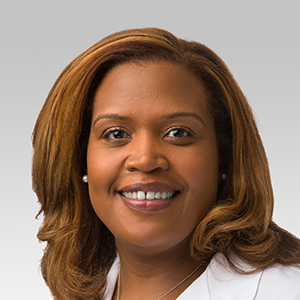SEASON 2 EPISODE 1
Get Support in Motherhood [Podcast]
How Sexist Societal Norms Impact Parenting
Published February 2023
About this Episode
Mothers are often seen as the primary parent. As such, mothers may face unrealistic pressures about parenthood and their roles as friends, romantic partners, employees and individuals. A Northwestern Medicine psychologist discusses how to break free from the sexist norms that impact all relationships and ensure that you are supported by your partners in your parenthood journey.
In this episode, we discuss:
- How gender norms and sexism impact parenthood.
- How even well-intended partners reinforce these gender norms.
How to have a conversation with your partner about roles and responsibilities before you have children.
Featured Guest Experts

About the Get Better Podcast
Living a healthier life is a journey with no final destination: You can always get better.
Susan Russell, MD, Khalilah Gates, MD, and Michelle Prickett, MD, are three pulmonologists at Northwestern Medicine who help people get better from critical illnesses. They are also lifelong friends and lifelong learners who want to get better from head to toe.
These three physicians will learn alongside you as they interview other Northwestern Medicine experts about health and medicine topics meant to help you achieve better health.
Transcript
Listen
Disclaimer: This podcast does not substitute for medical advice from a clinician.
Disclaimer: This podcast does not substitute for medical advice from a clinician.
Gates [00:00:00] Before we jump into our conversation today, we want to acknowledge that there is no one-size-fits-all to parenthood or families. We are cisgender, heterosexual women with male spouses, and we'll be speaking from our own lived experiences about our motherhood journeys, but truly believe that all families will benefit from this conversation.
Russell [00:00:24] Let's get stronger.
Gates [00:00:26] Healthier.
Prickett [00:00:26] Calmer.
Russell [00:00:27] Smarter.
Gates [00:00:28] Better.
Russell [00:00:29] Living a healthier life is a journey, not a destination.
Gates [00:00:32] You can always get better.
Prickett [00:00:34] Let's get better together.
Gates [00:00:42] All right, ladies, this episode, we're going to talk about motherhood. People say that having children is life-changing, but I don't think they really tell you the truth behind that statement. You know, we all have very supportive spouses. But somehow, being a mother, it all still, most of it still falls on you. I really believe that, you know, when you become a mom, you take on this societal understanding and try to live up to these norms that may or may not necessarily fit you. So what is that? Where does that come from? You know, how can we work through that?
Prickett [00:01:16] The discussion of motherhood is so, so important. You all know that I have three kids that everyone's like, "How do you have three kids?" I'm like, "Going from 0 to 1 is the hardest change." It really is life-altering in how all the changes that affect not only yourself as an individual and how you perceive yourself and the responsibilities and stressors that come with that, but also, you know, your relationship with your partner and how you balance having these, these new lives that you're responsible for and all the physicality and the emotional components therein. So, this is going to be a really interesting and helpful conversation.
Gates [00:01:50] I think this is a really well-timed episode because as we slowly emerge from the pandemic, I feel like there has been incredible pressure on parents to hit the ground running full-steam, nonstop, get completely back into the game with your kids, doing all sorts of things at all sorts of times with fewer resources to back it up, and with that sort of strain on the system, it's only a matter of time before things break and have cracks here and there. So I'm really looking forward to discussing how the recent changes in society have impacted parenting.
Prickett [00:02:42] Today, we're talking with Northwestern Medicine Psychologist Dr. Sheehan Fisher about the unrealistic pressures that mothers face. Dr. Fisher studies postpartum depression in fathers and mothers. His clinical work focuses on individual and couples therapies. Welcome, Dr. Fisher.
Fisher [00:02:57] Thank you. Thanks for inviting me.
Prickett [00:02:58] This is a topic that hits very close to home. The biggest pressure I've ever faced was that day coming home when they let me take my son and put him in the car.
Fisher [00:03:09] Parenthood is, you know, pitched as a wonderful thing, which is, of course, is great, but it comes with stress. It's just because it's a positive thing in many people's lives doesn't mean that it doesn't come with a lot of stress. But I think that the reason why this is also a sensitive period is that there's a lot of the gender norms, and sexism gets much bigger during this period of time, even though it was supposed to be a transition just for a role of just becoming a parent. There's a lot that's locked into the role that is gendered, that actually puts a lot of burden on the mom in ways that is almost unprecedented compared to before.
Russell [00:03:43] You know, obviously, a lot of my friends have plenty of anecdotes among each other about how, like when a kid is sick, they call us first, even though often we are the busier parent who is less accessible. It's just a given. That's who people are going to reach out to. There is just kind of that stark gendered kind of feel towards that.
Fisher [00:04:04] Yeah.
Russell [00:04:05] Why do you think people are pressured to follow along these lines?
Fisher [00:04:09] We're very married to gender norms to the point that it's at a fault and to the damage of many people. When it comes to becoming a parent, many times, even in relationships, relationships tend to be more egalitarian prior to having a baby, like even when they're dating, when they're married, it seems to be, "OK, we're pretty equal." But the second there's a baby that's born, then the gender norms start to become very divided, and society just doubles down on that. And it's not based on who's busier, who actually has access or a fair distribution. It is literally who's of what gender is the one that's chosen for a certain role, with moms carrying most of that burden.
Russell [00:04:48] I feel like it's shortchanging partners in some ways because sometimes a male in a relationship wants to be the one there or wants to be the one attending the class party or what have you. But if they don't even get the email to sign up, how are they going to be even at the table?
Fisher [00:05:04] You know, this is where the policies come in. It's actually built into the system around that calling when the child's sick. Across the board, the systems play into it. This is just the norm of how we exist and treat parents.
Prickett [00:05:17] And I think that goes two ways, like I think, you know, the term "primary parent" or "default parent" is a term that I have used. It always, somebody has to do it. And so it's going to default, and it typically will default to the woman in the relationship. But it comes with, even if there is that equity, you almost become the middleman. And so sometimes, you know, you have to take that call, and you put it off, send it to your partner. And if they're happy to do it, great. But then there's also that guilt that comes with it, like, well, maybe I should be doing it. And yeah, is that real? Because I feel it. Even if, I, we try to be equal, I still feel like maybe I should be doing that.
Fisher [00:05:50] Yeah, I think that does two things. Like, one is that I talk a lot about the idea between responsibility and task, that in many couples they might even get a chance to split tasks relatively equal. But it's still the mom who has to be the CEO of the family. She still has to be the one to carry that mental burden about making sure things get done and delegating, which means she always has to have stress on her mind, even when she's not performing the task or monitoring what's going on. So one part of it is just that it'll be not only good to split tasks, but actually split mental burden responsibilities for the home environment from raising the children even down to the day-to-day for taking care of the home. And then the other part around the guilt is that's what's built into our society. When I talk about this, like sometimes with patients, we talk about values. Talk about like, for the type of therapy I utilize, is very value-focused, or what are your personal values? And I emphasize that we want them to be the person's own values, not what's told to them. When anyone makes a rule, it usually benefits the person who makes the rule more than one that has to execute it. So society creates these norms about what the burden is. All you have to do is make someone feel like they're not worthwhile if they don't, and they'll do it for you. And that's kind of what our policies and our culture has created, is there's such a deep norm of what someone's role is that people will fall into it where they feel guilty if they don't overburden themselves because they feel that they're lesser, even though it's not actually fair.
Russell [00:07:13] Yeah, for sure. And I feel like the last couple of years, that's been especially true. Like speaking as somebody in academic medicine, there's pretty compelling research out there talking about how women have slowed down academic careers with professional publications and other output, whereas men seem to be on track or maybe even ahead of the game. And the perception is that women in large part slowed down because they took on the burden of child care when other forms of child care weren't available. Are there any other things you've seen the last few years that have kind of shifted this dynamic or maybe even heightened certain parts of these stresses that are kind of coming to bear on families to put things more on mothers or fathers to do certain things?
Fisher [00:07:59] Most families cannot live off of one income. This is not usually feasible for most families. Fathers are getting more involved in the home; they are doing more than 50 years ago. It's great, but still not equal. And yet moms are working the equal amount of hours outside the home. So even though there is an improvement on one in a bubble about father involvement, when you're doing that in comparison to also the fact that both are working, like, long hours, about equal hours, then that means that there is still this divide, where the mom is trying to do way more than her partner, which means mental resources, energy, all those things are going out the window and being extracted from moms, whereas fathers and men in general tend to be able to actually have more of that bandwidth, which then helps their career to move forward.
Prickett [00:08:43] I tell you, it starts early on, right? So, babies are hard. No one gets a manual about, like, how to take care of them. And maternity leave is not a vacation, right? Like, it is the job. It is a boot camp, if you will. A baby boot camp. You're learning each time. And I think it definitely, that policy definitely sets up men to feel like, "Oh, well, you've been doing it more. You know, you know how to do it better. You're better at this."
Fisher [00:09:07] We always think about, like, the initial phase of any role transition is very key because it sets the precedent, how things exist. So I think moms already feel pressure, "Well, this, the baby was just born. I have to be like that primary parent. I have to be on it." Fathers, because of lack of access, are to kind of lean away, and it then means that both of them kind of contribute to the problem with, they both kind of double down on like the father is a secondary parent, his opinions may not be as much valued. He may have actually less access. And even when I work with couples, sometimes I've seen it in the room, where the baby's crying, and the mom might just take the baby out of his hands. I'm like, "Hey, like, if you want him to be more engaged, we've got to figure out how to balance it." Where I've seen fathers hand baby off and I'm like, "OK, hey, you know, it's not only on her to take care of the baby." So I think both genders tend to play into it because it's already pre-established what they're supposed to do in those situations.
Russell [00:09:57] I know part of your work focuses on issues around postpartum depression in both mothers and fathers. Can you talk a little bit how that can apply to both parents?
Fisher [00:10:07] Both parents are at risk for developing depression during this time. There's, of course, the genetic risk that's predispositioned, along with just this being a role transition. So like I said, even though it's a positive one, it comes with a lot of stress. There is, like you said, no blueprint for this. So therefore both are trying to change. Moms, typically, maybe did not have a mother themself who worked full time the way they did and also to carry the child. Men don't usually have fathers who were as heavily involved, so, and also working full time. So I think both of them are trying to figure out how do I do this thing that I have no model for how to do, and then do this in a more egalitarian way. And then in addition to that, that stress is just the fact that, you know, with, you know, financial pressures, with trying to balance things like COVID and other environmental factors, all these things can put people at a risk for developing depression or anxiety or other symptoms.
Prickett [00:10:56] Not to mention sleep deprivation. Let's be honest. You add that to the mix, and even if the idea is, we want to be equal, even if the idea and everyone's intent is, we're going to share this responsibility and we're going to break down kind of structural barriers, I think there are pressures that make conversations about when things go wrong — and they will — difficult. So how do you recommend that couples and parents approach these partnerships and approach these difficult conversations that, you know, maybe societal influences into their real lives and gives them real feelings?
Fisher [00:11:33] Thinking about how to navigate that together, it's best to do that before the baby is even conceived. To have an honest conversation about gender and the sexism that plays into our world that we all contribute to, whether we want to or not, intentional or not. Just talking about, how do we ensure on both sides this doesn't play out, and what do we want to retain? And then, when the baby does come, noticing each of your own knee-jerk reactions that are more gender-based about who should be responsible on either end, whether it's about like some stereotypical masculine roles or feminine roles, both of them. You have to decide. I do a lot in couples therapy, "Hey, did you guys agree to this, or did you just fall into it?" And, therefore, we think about, how do you almost create like a constitution for your relationship? Most people, just like with having a baby, just kind of get married, say some vows, but you don't really think through in-depth about what is the inherent core structure of our relationship that we want to retain. And if you don't have that, then you are going against the wind and likely to get blown away. So I think it's important to kind of have a sit-down conversation, not necessarily when things are happening, going wrong, but preemptively think about what do we want to maintain for the sake of our relationship and also our own personal well-being?
Prickett [00:12:50] The idea of a constitution of our relationship, it seems like a lot of writing.
Russell [00:12:54] Oh, dear. That seems like a lot of work. What do you mean, marriage is work?
Fisher [00:12:58] It's work up front.
Russell [00:12:58] What? Parenting is work. What? Parenting is wonderful and lovely.
Prickett [00:13:05] Oh it's so wonderful. It's just the best thing ever. That's the biggest misnomer that nobody really likes to talk about is, it is hard. And even if you are doing the right thing and you're having these conversations ahead of time, there's so many societal influences. No matter what groups in society you identify with, I think they're there, and they play a role in how we perceive not only ourselves but how people perceive us.
Fisher [00:13:28] What we're discussing is kind of more of a heteronormative dynamic, but there are other dynamics that exist that we need to take into account that still struggle with the fact that we view, in America at least, like, once you have a kid, your life is over. We view parenting as a time of suffering. There are things that can be done to reduce how much we do suffer and how much we struggle. But it's almost like the more we struggle, the more of a good parent I am. There's things that I work on with patients in therapy to actually create a level of balance that don't seem as feasible because of feeling guilty, and I mean that for moms and dads, because it's outside the norm of what everyone else does, that actually limits our ability to enjoy it.
Russell [00:14:06] So how can we as a society stop contributing to this type of social construct that seems to be toxic to mothers and kind of leave fathers by the wayside?
Fisher [00:14:18] From my opinion, the biggest thing we have to change is culture. So, for example, if you, maybe 10, 15 years ago, you wouldn't necessarily see fathers at an ultrasound. But over time, that became so normative that the guy did not go, other men would look at him with criticism. How could you not go to your child's ultrasound? That's a societal norm that was able to change, that led to more father involvement. And I think we need to do a lot more of that. There are more recently more movies and other type of media to influence this, but it really is a change of culture that we need to develop to make sure that we can think through, why do we sustain a lot of these toxic gender norms that honestly, like you said, it hurts moms and dads? It's not like men benefit from it too much or moms benefit from it, but we all hold onto it in an unhealthy way. For example, we don't always think about splitting your task based on strengths. Like, OK, what are you good at, not based on your gender, but what are you good at? What am I good at? How do we cross-train? If I do have deficiencies, I can train myself to learn something, learn how to cook or do X, Y and Z. There's a lot that can be done to just make things more about, "Two humans came together and decided to have a family together," than, OK, there's a mom and there's a dad and therefore it's already prescribed how they need to coexist.
Prickett [00:15:35] I think language is a big part of it too, right?
Fisher [00:15:38] Yes.
Prickett [00:15:38] I think how we talk about our children, our family, people say, "Is your husband watching your kids?" I'm like, "No, he's not babysitting my kids. He's with his children." Like, it's...
Fisher [00:15:47] Exactly.
Prickett [00:15:47] It's not him doing me a favor. It's him enjoying time with his with his children. And I think a lot of how we talk, and the words, language that we use, has an influence that we don't always think about. So...
Fisher [00:16:00] Yes. Like even the way we talk in our own head, much less how we talk to others or they talk to us, it does influence how we understand what is OK and what is normal. Sometimes when I'm working with moms and I'm trying to encourage them to take a break for themself, they might say, "Well, let me ask my husband." I'm like, "Wait, like, you never had to ask permission to go out with your friends prior to this baby." But they feel a certain level of pressure. "Well, now that I'm a mom, I've got to make sure that he's OK with me leaving the baby with him." Whereas if he has, like, a happy hour, he might inform her about it, but it's not necessarily like, "I need to ask permission." So I encourage moms like, "OK, as long as the baby's healthy and safe, and that the partner is calm enough to keep the baby alive, just hand him the baby and leave the house. Like, you can inform him, but you don't have to like ask as if you're becoming subservient to your partner."
Russell [00:16:46] If somebody is listening right now and kind of thinking about these words and saying, "Wow, like, my relationship in my family is lopsided, and I feel like things are not in a good place with distribution of tasks and labor," how would you suggest opening that conversation, or what language have you introduced to help people start to break down that barrier to have that conversation?
Fisher [00:17:14] I, for one, would say like, not to do it, of course, during an argument or anything that is actually like, you know, issue, but just talk about it more like a general thing. Expressing their own needs and that they have agency within it, and to make sure that it doesn't come across like, "I'm once again asking permission for this to change," versus, "We need to work together toward this common goal." And I think that once again, language matters too. Like, we don't call out sexism as much within our relationships. We will like, if for example, if it was a mixed-race relationship, and there was some type of racist behavior happening, people say, "Oh, that's racism." Be comfortable pointing out that behavior. But when it comes to sexism, it is so normal across, like we said, so many cultures, so many backgrounds, that when we're talking through why the mom deserves to have equality in the home, we don't voice it in the sense of, "This is a sexist dynamic and we need to change it." It's almost as if, like, there's this cherry on the ice cream, like, "Oh, this is like a little bonus to ever ask for more equality in the relationship." And that's a mentality shift that I think both moms and dads have to focus on is like, "This is not something that should be requested," as if it's like a bonus. But this should be talked about as if this is a human right, that there should be equality in the home, and that we should move toward this until we actually achieve it. Another thing I even think about is the power that comes with money. Even in relationships, sometimes if the father is either making more money and/or is the sole income, even though they say, "Oh, this is our money," it rarely actually plays out that way when it comes down to the hard decision-making or certain moments where you start to see that not only gender divide, but also that just the power that comes with the financial divide. Even sometimes well-intentioned men might say, "Hey, you don't have to work, I'll take care of things," and they might be able to afford it not realizing that for just the mom as being a full human, work is not just about income, it's also about identity, it's about what you pursue, about what's important for your well-being, social interaction. There's so much benefit that comes from it that men typically are able to enjoy, but then at times either discourage or even out of good-heartedness are encouraged, "Hey, you don't have to work." But that actually puts the mom in a situation where, if value base is important for her to work, she may not be happy when she quits her job.
Prickett [00:19:37] I think it goes even beyond work, though. I think, you know, it's our identity is tied to a lot of things, and it's what I want my identity to be. And I, and it's influenced by how people perceive me. And sometimes, you know, our partners, not, they don't live in that same body. They don't have that same experience or that same lens of life. And it's really just coming out and saying that "this is my reality, this is how the world takes me in and the feedback I'm receiving. And maybe it's very different from you, and this is, but this is what I need to feel complete, and this is what I need from you to help me in that manner." And you would hope that your partner wants to find that cohesion, find that balance for you. But sometimes they don't know because the world treats them very differently. And just having that honest conversation, "Maybe you don't see me that way, but the rest of the world does. And I feel that, and it impacts me to do this." So I think those conversations are very difficult to come away without sharing a little bit of vulnerability in yourself and how society impacts our thoughts.
Fisher [00:20:40] Absolutely. And I think that, you know, like once again, without the lived experience, a lot of times men unintentionally are not aware of those types of pressures and experiences. And so it's good to inform. But at some point, you have to draw that line to actually start to take your life back. There's a concept called "self as context" where your environment can influence how you feel about yourself, not only your thoughts, but also your general environment. And you have to be careful about how much you let your self-identity be reflected based on the environment. There's so much that is imposed upon people's identity about their worth that isn't because that's what they believe in, but because they're surrounded by this environment, like people say things, they treat you in certain ways. You start to internalize that, and that can, over time, erode your true self and just become like a reflection of your environment rather than retaining your own identity. So that is, I think, honestly a part for moms and dads, is that part of that struggle is becoming a new parent, just that label alone really starts to negatively influence your identity in some ways that may not fit who you truly want to be.
Russell [00:21:41] Your relationship is the one your kids are going to see, and that's the one that your kids are going to model. If you don't work at it, you're not working at it for your children or yourself.
Fisher [00:21:52] They will repeat the same history, and people tend to be able to see the danger in that more because they love their child and would never want to put them through that. But it's hard for them to understand that they are in that same situation, that the environment and the world has pigeonholed them into some experience and role that they don't really want to have, but they feel too either guilt or other negative emotions to want to change that.
Russell [00:22:12] Well, thanks so much for talking to us today, Dr. Fisher. I feel like I've learned a lot about dynamics between parents, as new parents and how things have been changing in society over the last generation and all the work we still have to do of kind of addressing the balance between moms, dads, kids, responsibility, who's doing what when, and how important it is to have our own family constitution. So thank you.
Fisher [00:22:39] Thank you.
Russell [00:22:43] Thanks for listening to Get Better.
Gates [00:22:45] We hope you leave this podcast better than when you started.
Prickett [00:22:49] For more information, visit nm.org/healthbeat.







